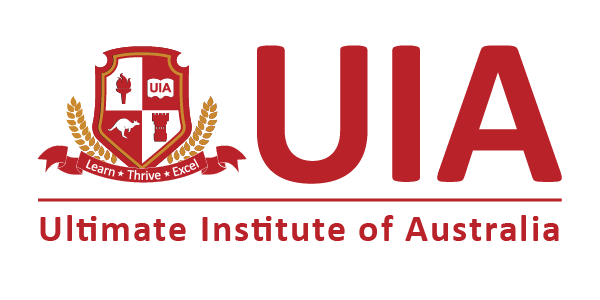Diploma of Information Technology (Cyber Security)
Provider:
Course Code:
ICT50220
CRICOS Code:
108254C
Qualification Level:
Diploma
Course Area:
Information Technology
Duration:
52-Week
Study Mode:
Full Time
Location:
Victoria (Melbourne)
Course Fee:
$9,500 - $15,800 Per Course
Delivery Mode:
On Campus
Target:
Domestic, International
Intake:
Monthly
Course Overview
ICT50220 Diploma of Information Technology (Cyber Security) qualification reflects the role of individuals in a variety of information and communications technology (ICT) roles who have established specialised skills in a technical ICT function.
Individuals in these roles carry out moderately complex tasks in a specialist field, working independently, as part of a team or leading a deliverable with others. They may apply their skills across a wide range of industries, business functions and departments, or as a business owner.
Course Structure
To achieve this qualification, the learner must demonstrate competency in the following 20 units:
Core Units
- BSBCRT512 Originate and develop concepts
- BSBXCS402 Promote workplace cyber security awareness and best practices
- BSBXTW401 Lead and facilitate a team
- ICTICT517 Match ICT needs with the strategic direction of the organisation
- ICTICT532 Apply IP, ethics and privacy policies in ICT environments
- ICTSAS527 Manage client problems
Elective Units
- ICTCYS407 Gather, analyse and interpret threat data
- ICTCYS610 Protect critical infrastructre for organisations
- ICTCYS613 Utilise design methodologies for security architecture
- ICTSAS524 Develop, implement and evaluate an incident response plan
- ICTSAS526 Review and update disaster recovery and contingency plans
- ICTNWK538 Install and maintain valid authentication processes
- ICTNWK541 Configure, verify and troubleshoot WAN links and IP services
- ICTNWK547 Manage system security on operational systems
- ICTICT523 Gather data to identify business requirements
- ICTNWK529 Install and manage complex ICT networks
- ICTNWK540 Design, build and test network servers
- ICTTEN611 Produce an ICT network architecture design
- ICTNWK546 Manage network security
- ICTSUS501 Implement server virtualisation for a sustainable ICT system
Entry Requirement
| Admission Requirements | |
|---|---|
| Academic Entry Requirements | Satisfactory completion of an equivalent Australian Year 12 or Certificate IV or higher. |
| Minimum Age to Apply | Learners must be 18 years of age or older. |
| Language Requirement | |
|---|---|
| IELTS Score (Minimum) | If one of the following applies, you do not need to provide evidence of an English test score with your application: you have completed at least five years’ study in one or more of the following countries: Australia, UK, USA, Canada, New Zealand, South Africa, or the Republic of Ireland you are a citizen and hold a passport from the UK, USA, Canada, NZ, or Republic of Ireland in the two years before applying for the learner visa, you completed, in Australia and in the English language, either the Senior Secondary Certificate of Education or a substantial component of a course leading to a qualification from the Australian Qualifications Framework at the Certificate IV or higher level, while you held a learner visa. Learners who do not satisfy one of the above criteria and wish to apply to study a VET course, must provide evidence of one of the following: IELTS General test score of 5.5 (or equivalent*) for direct entry into the course IELTS General score of 5.0 (or equivalent*) with evidence of enrolment in an ELICOS course of at least 10 weeks’ duration taken before the VET course IELTS General score of 4.5 (or equivalent*) with evidence of enrolment in an ELICOS course of at least 20 weeks’ duration taken before the VET course Completion of an ELICOS course exiting at the upper-intermediate level, or Successful completion of UIA’s language, literacy and numeracy assessment. Results older than 2 years are not accepted. |
Career Opportunities
After the successful completion of this qualification, there are several career pathways, which includes but not limited to:
- Cyber security specialist
- Network Administrator
- IT Administrator
- Network Support Coordinator
- Network Analyst
- Network Security Specialist
